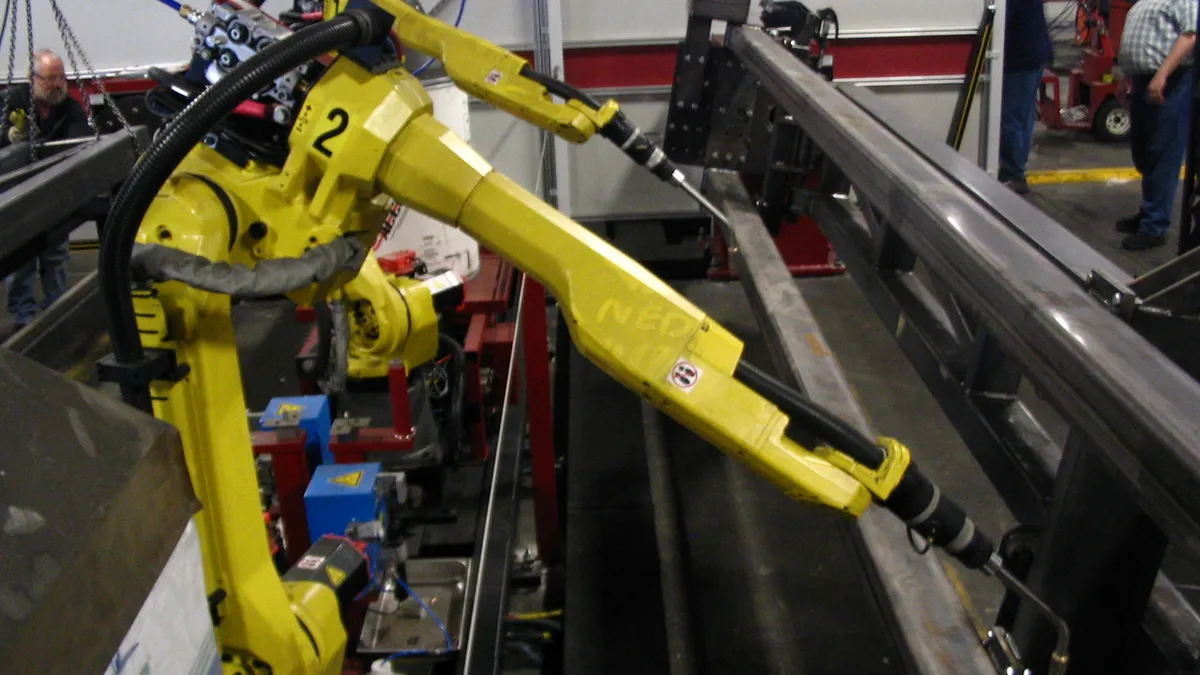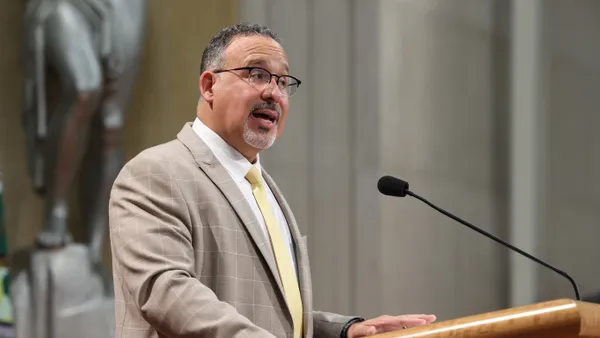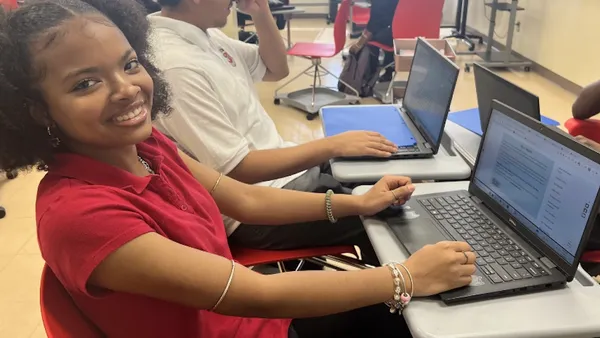Dive Brief:
- Four community colleges in Connecticut are launching a stackable two-year apprenticeship program in advanced robotics, responding to demand for those skills in the state's workforce and around the country, the Hartford Courant reported. The program feeds into a four-year degree at Central Connecticut State University.
- A $217,000 grant from the nonprofit Advanced Robotics for Manufacturing Institute as well as $130,000 from the state Department of Economic and Community Development will fund the purchase of five robots and 4,000 hours of apprenticeship training for 30 students during the first year.
- The grant proposal team included the University of Connecticut, the Connecticut State Colleges and Universities, Central Connecticut State University, consultancy Connstep and digital technologies firm ABB.
Dive Insight:
Connecticut is providing one example of how higher education can work in cooperation with a number of community resources and employers to ensure they meet the needs of students and the companies looking to hire them.
But the path isn't always smooth.
Dianne Harrison, president of California State University, Northridge, says she has found a deep disconnect between what hiring managers expect and the caliber of applicants. Employers want new employees to be able to learn on the job quickly, understand complex organizational structures, have analytical skills and exhibit higher-order thinking, she explained in a post for the EDUCAUSE Review. They also expect new employees to have a command of the discipline in which they have earned a degree, as well as an interest in staying current in their field through professional development opportunities.
West Virginia University President Gordon Gee has said that higher education suffers from a problem of complacency with doing business as usual. The comment was made during a panel discussion sponsored by the Committee for Economic Development of The Conference Board with a group who offered recommendations as to how policymakers can help move the sector forward and stay relevant.
Higher education is focused on degree completion, panelists contended, while employers are concerned with hiring a competent workforce.
Penn State University President Eric Barron echoed those concerns during a panel in September hosted by the Association of Public & Land-grant Universities to discuss a new working paper by members addressing the growing role of large research universities in workforce development. "Why not think about it in the same context as economic development and job creation?" he said.














